CATEGORIES
Kategorier

Global warming reaches central Greenland
A temperature reconstruction from ice cores of the past 1,000 years reveals that today's warming in central-north Greenland is surprisingly pronounced.

Migratory birds in North America are shrinking as their wings get bigger
North American migratory birds are becoming smaller as the planet warms due to climate change, a new study finds.

Extinction crisis puts 1 million species on the brink
This did not happen in the last one crore years, which is happening now. More than one million species of animals are on the verge of extinction in the whole world.

Boosting anti-cancer antibodies by reducing their grip
Antibodies detect and tag viruses and bacteria so the body's immune system can destroy them.

Arctic blast sweeps US
An arctic blast has brought extreme cold, heavy snow and intense wind across much of the U.S. just in time for the holidays.

Genome and Genome Sequencing Technologies
Genome is the vital genetic information of all living beings and being able to decode this genome had been an enduring wish for biologists and geneticists alike.

A soybean protein blocks LDL cholesterol production, reducing risks of metabolic diseases
Consuming soy flour rich in the protein B-conglycinin has the potential to reduce LDL Ci cholesterol levels and lower the risk of metabolic diseases such as atherosclerosis and fatty liver disease, said Elvira de Mejia, a professor of food science and human nutrition at the University of Illinois Urbana-Champaign and the corresponding author of the study.

Zombie virus
The words \"zombie virus discovered in Russian ice\" sounds like something straight out of a horror film although after the pandemic, it's pretty difficult to shock any of us.

Gympie Gympie: suicide plant which causes thoughts of suicide
The stinging bush, a member of the nettle family (Urticaceae), gets its name after the Australian town of Gympie, a gold mining hub settled in the 1860s.

The 10 biggest science stories of 2022
The James Webb Space Telescope sends back mind-bending images

Climate Change Affects Mosquito Behaviour
Changes in climatic factors such as higher temperatures and increased rainfall affect the developmental, behavioural and distribution patterns of insects like mosquitoes.

Are We Living In A Simulation?
We humans are not capable enough to understand and experience the exact nature of the universe, unfiltered. Due to several biological and physical limitations of our sense organs and brain we only process a small fraction of the universe.

Seaweeds: powerhouse of Immunonutrients
Functional foods are those foods which are capable of imparting a therapeutic benefit to the consumer.
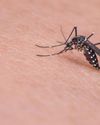
Why some people are mosquito magnets
It's impossible to hide from a female mosquito -- she will hunt down any member of the human species by tracking our CO2 exhalations, body heat, and body odor.
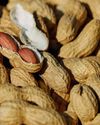
Peanuts and herbs and spices may positively impact gut microbiome
Adding a daily ounce of peanuts or about a teaspoon of herbs and spices to your diet may affect the composition of gut bacteria, an indicator of overall health, according to new research from Penn State.

Pandoravirus: the melting Arctic is releasing ancient germs
Scientists have recently revived several large viruses that had been buried in the frozen Siberian ground (permafrost) for tens of thousands of years. The youngest virus to be revived was a sprightly 27,000 years old.

FROM MID-SEA TO MOUNTAIN TOP
Think of this situation: You are in the process of learning swimming with someone's hand-holding.
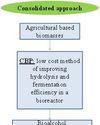
Waste to wealth via integrated biorefinery
Industrial development for the past two centuries has been driven by non-renewable resources i.e. fossil fuels and petroleum.

US Air Force unveils newest stealth bomber aircraft
The US Air Force introduced the first Sixth Generation Stealth Bomber on 3 December 2022. Its name is B-21 Raider Stealth Bomber.

Remnants of Ancient Earth-Like World Seen Being Eaten by a Star
The main sequence life of a star like the Sun may not end in a supernova like the most massive stars out there, but it will not be a quiet affair.
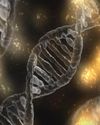
CRISPR/Cas9 a fantastic voyage to existing medical and agriculture modalities?
Very shortly a CRISPR-based drug will be approved. If approved, it would treat a pair of rare and deadly blood diseases and will cure millions.

Zombie' genes
In the hours after we die, certain cells in the human brain are still active. Some cells even increase their activity and grow to gargantuan proportions, according to new research from the University of Illinois Chicago.
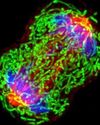
Cancer: A blight but remediable disease due to technological progress in the medical field
Cancer is undoubtedly a serious life-threatening disease that has become unambiguously a global threat.
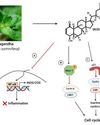
Ashwagandha: A Potential Source For Cancer Therapeutics
Several ayurvedic plants have been reported to possess cancer preventive and chemotherapeutic potential.
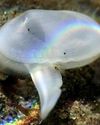
Oyster which went extinct 30 thousand years ago found again near California
The species of oyster which was believed to be 30 thousand years old fossil, has now been found alive.
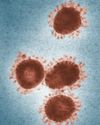
Scientists wake up Megavirus sleeping in Siberia for 48,500 years
In a new paper, which is yet to be peer-reviewed, the researchers explain how they identified and revived 13 viruses belonging to five different clades from samples collected in the icy Russian far east.

Ancient 15.000-Year-Old Viruses Found in Melting Tibetan Glaciers
Ancient creatures are emerging from the cold storage of melting permafrost, almost like something out of a horror movie.

Unmanned aerial vehicles (UAVS)- Drones
During the inter-war period the development and testing of unmanned aircraft continued. In 1935 the British produced several radio-controlled aircraft to be used as targets for training purposes.

Ice And Dust Ladder On Mars
The image of ice and dust layers on Mars from an orbiting NASA spacecraft may provide a window into the complex, waterfilled history of the Red Planet, a new study suggests.
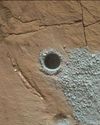
Mysterious Mineral On Mars
Planetary scientists from Rice University, NASA's Johnson Space Center and the California Institute of Technology have an answer to a mystery that's puzzled the Mars research community since NASA's Curiosity rover discovered a mineral called tridymite in Gale Crater in 2016.